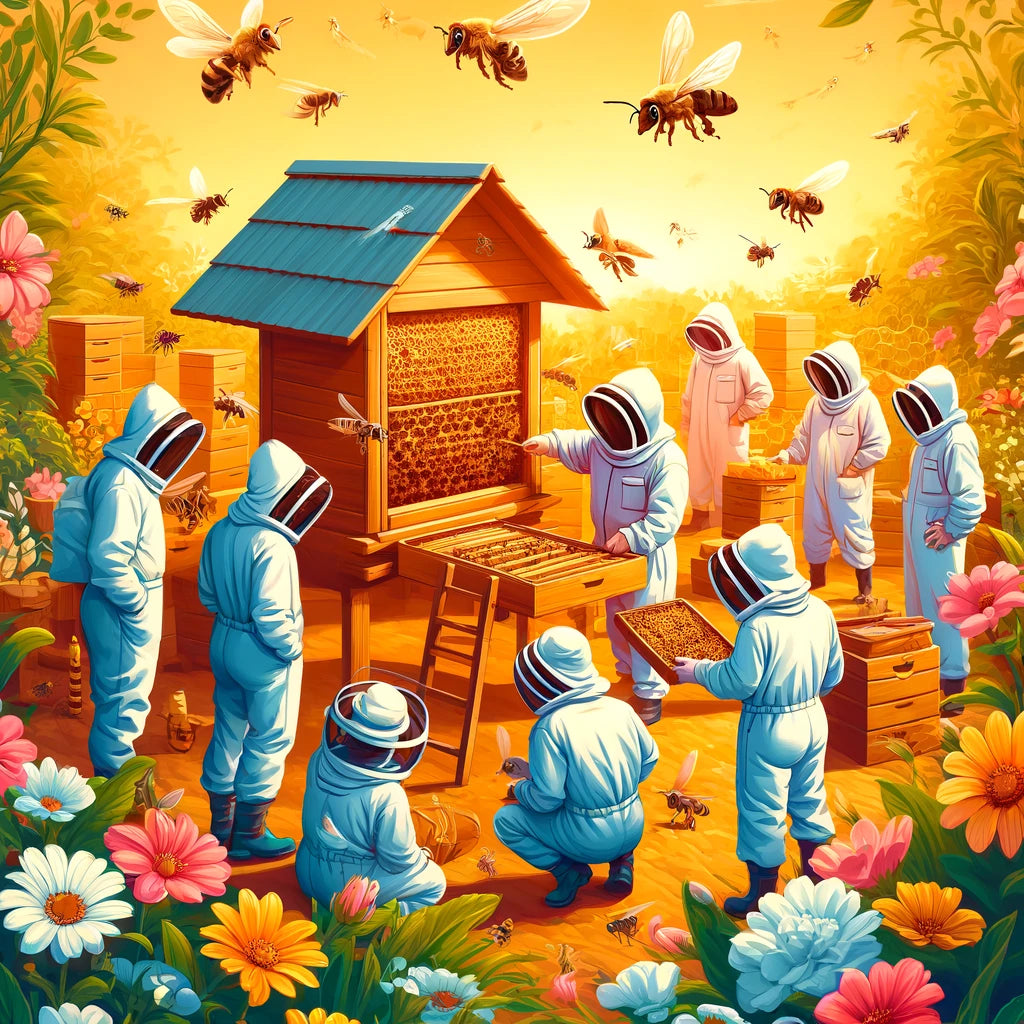
Purchasing Honey Bees: A Complete Guide
Your journey into beekeeping starts with a pivotal decision: purchasing honey bees. This step is about more than just obtaining a hive; it's entering a new realm of agriculture and environmental stewardship.
Whether your interest is sparked by the prospect of producing honey, contributing to the pollination of plants, or simply engaging with the natural world in a closer, more intimate way, the choice of where and how to purchase your bees is foundational to your beekeeping success.
Navigating the world of bee sales can be complex. You'll be faced with choices about bee species, bee suppliers, and the health of your future hive. This guide is designed to simplify these decisions. It offers clear, concise advice to guide you through purchasing honey bees, ensuring you make choices that align with your goals and the environment.
Understanding Your Beekeeping Ambitions
Before you make a purchase, reflect on your beekeeping goals. Are you aiming for honey production, pollination, or perhaps both? Your objectives will determine the type and quantity of bees you need. This initial clarity is crucial in aligning your purchase with your beekeeping aspirations.
Selecting the Right Type of Bees
The diversity among honey bee species offers various traits, from temperament to productivity. For newcomers, gentle species like the Italian bees are often recommended due to their manageable nature. Researching bee species is key to finding the right fit for your beekeeping environment and style.
Purchasing Options: Local vs. Online
Local Beekeeping Suppliers
Buying locally offers numerous advantages, including access to bees that are adapted to your region's conditions. Local beekeepers can provide invaluable insights and ongoing support. Engaging with your local beekeeping community can also lead to mentorship opportunities and insider knowledge of bee management practices.
Online Purchases
Purchasing bees online broadens your options significantly. It allows you to explore various suppliers and bee types. When choosing to purchase bees online, consider the reputation and reviews of the seller. Ensure they follow safe shipping practices to guarantee the health and well-being of the bees upon arrival.
Package Bees vs. Nucleus Colonies
Buying bees involves two main options: package bees and nucleus colonies (nucs).
- Package Bees: This option includes a queen and several thousand worker bees without a comb. It's ideal for those ready to establish a new colony from scratch.
- Nucleus Colonies: Nucs offers a small, functioning colony with a queen, workers, and brood. This option can provide a quicker start since the foundational colony structure is in place.
Evaluating Bee Health and Quality
Ensuring you're purchasing healthy bees is paramount. Whether buying locally or online, inquire about the health management practices of the breeder. Healthy bees should be active and show no signs of disease or distress. When possible, ask for health certifications or records.
After the Purchase: Preparing for Arrival
Once you've made your purchase, preparing for the arrival of your bees is next. Ensure your hive is ready and familiarize yourself with the installation process for your chosen bee type. Having the right tools and protective gear on hand is essential for a smooth transition.
Conclusion
Purchasing honey bees is a significant first step in the rewarding journey of beekeeping. Whether you opt for local suppliers or explore online options, understanding your goals, selecting the right bee type, and ensuring their health are all crucial considerations. By carefully planning your purchase, you set the foundation for a successful and fulfilling beekeeping experience. Armed with knowledge and the right resources, you're well on your way to becoming a steward of these vital pollinators.
Frequently Asked Questions on Purchasing Honey Bees
-
Can I purchase honey bees year-round?
Typically, bee suppliers accept orders for spring delivery in winter. Availability can vary, so planning and early ordering are advisable. -
Are there bee breeds more suitable for cold climates?
Certain breeds, like the Carniolan bees, are known for their ability to withstand colder temperatures and adjust their brood size accordingly. -
How many bees should I start with?
For beginners, starting with one or two colonies is recommended. This allows you to learn without being overwhelmed. -
Can I purchase a queen bee separately?
Yes, queen bees can be purchased separately if you need to replace a lost queen or want to introduce new genetics into your hive. -
Is shipping bees safe?
When done correctly, shipping bees is safe. Reputable suppliers use specialized packaging to ensure the bees' ventilation and comfort during transport. -
Do I need a permit to keep bees?
Requirements vary by location. Check with your local agriculture department or beekeeping association for regulations in your area.



Leave a comment